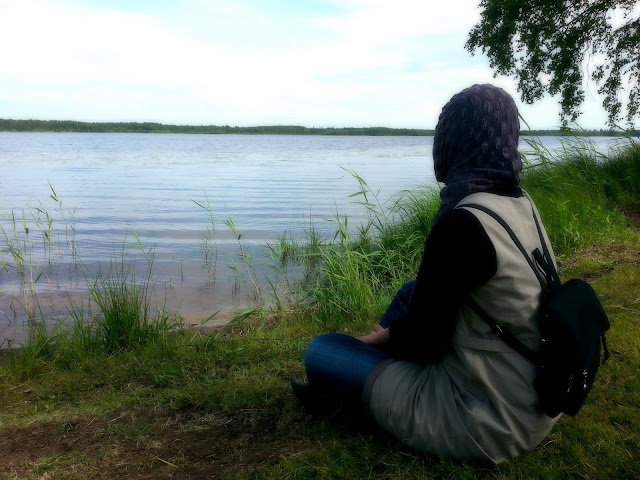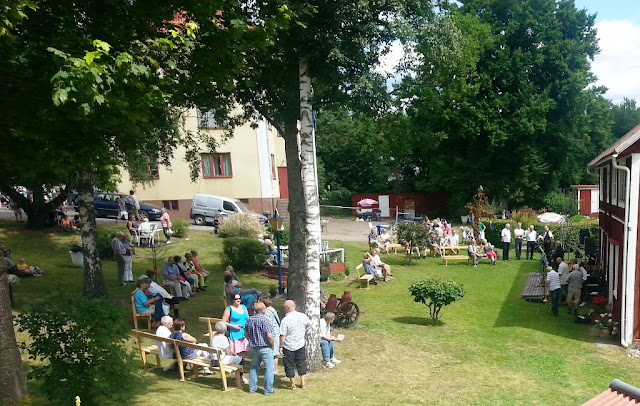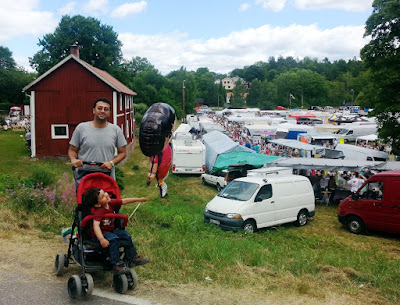Rasha Almaqaleh
I’ve always been fascinated by languages for language is, as Edward Murrow once said, “the memory of man.” That’s why I find learning a new language interesting and much fun. But, it could be challenging and tricky at the same time. Especially if the language to be learned has difficult sounds and complicated grammatical rules.
When I started learning English, I couldn’t help but comparing it to my mother tongue, Arabic. I would spend so much time figuring out the differences and similarities in the sentence structure, sounds of letters, articles, noun genders, etc. But, when we learn more than one or two second languages, comparisons become much more fun!
I learned English a long while ago and it was my ‘first’ second language. I loved learning it since I was in school and I’ve always planned to master it. Ironically, I got higher grades on English than on Arabic! I think that’s because the Arabic language is more complex and difficult comparing to English.
The first thing I noticed when I started my journey with English was that the Arabic alphabet consists of 28 letters while the English alphabet has 26 letters. I started searching for the sounds that Arabic has and English does not. The variety of the sounds in Arabic is stunning. Take a look at the table below to see the Arabic alphabet and the corresponding letters in English.
Before living in Italy, I used to think of English as a universal language and a great way of communicating with the whole world regardless of its differences. However, my faith in the English language and the whole ‘dreamy’ concept of communicating with the world crashed in Italy! There, my English was pointless and not much of a help. That is because most of the Italian people don’t speak English at all. English to them is very difficult to speak and hard to understand. As a result, I had to learn some Italian to be able to communicate with my surroundings.
Honestly speaking before arriving in Italy, I hadn’t known a
thing about the Italian language, not even a single word. In my early days there, I remember hearing the
word “Si” so much and I was wondering what that word meant and why Italians
use it so much. And when I started learning Italian, I found out that ‘Si’
simply means Yes! Wow, I really had zero knowledge of Italian and it was then
when I realized that I would struggle learning it.
I started listening to people when they spoke and I found that the sound of Italian was so different from English. That was
interesting because I realized that I was comparing Italian to English and not
to Arabic. I think that’s because English is a second language to me and
Italian, too.
But, when I learned how the verbs are conjugated in Italian and how we could use the verbs without the need to mention the pronoun for it is already indicated in the verb, I started comparing it to Arabic.
But, when I learned how the verbs are conjugated in Italian and how we could use the verbs without the need to mention the pronoun for it is already indicated in the verb, I started comparing it to Arabic.
Italian is indeed musical and Italians talk
SO MUCH! When I knew that the Italian alphabet consists only of 21 letters unlike
English which has 26 letters, I wondered how they do all that talk with only 21 letters. Well, actually with 20 letters! The letter H in Italian is pronounced just as the letter a, as in apple. That’s why
it’s so difficult for Italians to say a basic English sentence such as: ‘I
have’! Instead, they pronounce it like this : “I ave!"
When I moved to Germany and started to learn
German, the first thing I noticed was how different the German language is from
Italian and how close it is to English, well, close to some extent. For
example, when I hear Germans say: “Das ist gut!” I think they say: “This is good!” The
similarity is stunning. We say hello in English and hallo in German! Moreover, some
words in German are used in the same sense as in English.
For example, the word ‘book’ in English which means ‘printed work’ could be used as a verb to, to book, in this case it means ‘to make a reservation. In German it is just the same with the word ‘buch’ which means book and the word ‘buchen’ which means to book.
Furthermore, the phrase ‘so far, so good’ which is widely used in English has a similar German equivalent : ‘so weit, so gut’. The word weit means exactly far. There is an ongoing debate over whether this phrase is just a translation of the English one or is it a genuine German phrase. However, what really matters to me is how similar the usage of words and context is.
For example, the word ‘book’ in English which means ‘printed work’ could be used as a verb to, to book, in this case it means ‘to make a reservation. In German it is just the same with the word ‘buch’ which means book and the word ‘buchen’ which means to book.
Furthermore, the phrase ‘so far, so good’ which is widely used in English has a similar German equivalent : ‘so weit, so gut’. The word weit means exactly far. There is an ongoing debate over whether this phrase is just a translation of the English one or is it a genuine German phrase. However, what really matters to me is how similar the usage of words and context is.
But, when it comes to the gender of nouns, German
gets so complicated, more complicated than Arabic! In Arabic, we have two noun
genders: feminine and masculine. In German, there is a third category which is
‘neuter’. And this is something I’m really struggling to make sense of. Neuter
describes a word that is neither feminine nor masculine. For example, the word
‘kind’ which means kid or child, is neuter. It doesn’t matter if the kid is a
boy or a girl, the word itself is not either!
And with the three different genders come the
three different articles. While in English there is only one definite article
‘the’ and two indefinite articles a/an(depending on the first letter of the
word), there are three definite articles in German: der, die and das, and ‘theoretically’
there are two indefinite articles ,ein and eine. However, when ‘cases’ are
considered, the indefinite articles madly multiply: einen, eines, einer,
einem, and eines!
There are four cases in German: nominative, dative, accusative, and genitive. Those
four cases in German are what made me appreciate the simplicity of the English language.
There are four cases in German: nominative, dative, accusative, and genitive. Those
four cases in German are what made me appreciate the simplicity of the English language.
Unlike English and Italian, all nouns in
German are capitalized which means that each and every single noun must be
written with a capital letter. This is one strict rule that our teachers would
never tolerate violating! And now, by force of habit, when I write in English,
I find myself eagerly capitalizing all nouns! Then, I realize that I’m not
writing in German and the ‘decapitalizing’ process starts right away. Learning
languages could really mess up your head!
One of the many things that surprised me about German
is the way the letter R is pronounced! In some regions of Germany, especially
in the north where we live, the letter R is trilled, similar to the French R.
This was quite confusing at the beginning but with time I got used to trill all
the Rs. Actually, I have no problem with the sound of the trilled R because in
Arabic we have a letter with a similar sound. Therefore, we, Arabs, can trill and 'gargle' with no trouble. However, I still cannot accept the way my name, Rasha, is
pronounced in German! I don’t like the sound of it but I have to answer,
anyway!
And even though the sound of the trilled R is a
piece of cake to me, there are other complex sounds that I’m still struggling
with, such as pronouncing the following letters which are called ‘umlaute’ : ü,
ö, and ä. I am still not
satisfied of the way I pronounce words such as: Übung and Löffel.
Moreover, there is a special pronunciation of the syllables 'ech' and 'ich' and pronouncing the words that have one of these syllables, or sometimes both!, is such a struggle. I always don't feel good about uttering the following words ‘ich’, ‘shclecht’, ‘schrecklich’ and a bunch of other words. I always ask Germans when they pronounce such words about the location of their tongues. It’s indeed a strange and difficult sound for me.
Moreover, there is a special pronunciation of the syllables 'ech' and 'ich' and pronouncing the words that have one of these syllables, or sometimes both!, is such a struggle. I always don't feel good about uttering the following words ‘ich’, ‘shclecht’, ‘schrecklich’ and a bunch of other words. I always ask Germans when they pronounce such words about the location of their tongues. It’s indeed a strange and difficult sound for me.
‘Doch!’
This is one of my favorite words in German. I like this word because we have
similar words in both standard Arabic and also dialect. Even though this word
is often translated in English into a variety of words such as but, but still, and
yes, none of these translations are really accurate or satisfactory. As a
matter of fact, there is no equivalent word in English for doch. So, what is the meaning of this word and in
what context is it used?
I will try to explain this word with an
example because I don’t think there is any other way.
A mom and her child are in a supermarket and
then the child sees a toy and say to his mom:
Child: “Mama, ich will dieses Spielzeug!” (Mom, I want this toy!)
Child: “Mama, ich will dieses Spielzeug!” (Mom, I want this toy!)
Mom: “Nein!” (No!”)
Child: “Doch!” (“It’s a yes even if you say no!”)
So doch in the previous context is not
just a plain yes. It is a yes to someone who says no. That’s why you will find this
word very popular among kids here and actually my son always uses it with almost
every single no we say to him!
Ultimately, I enjoy doing such comparisons
while learning and I find learning languages this way more fun and culturally
enlightening. Or as Rita Mae Brown put it ocne: “Language is the road map of a culture.”






